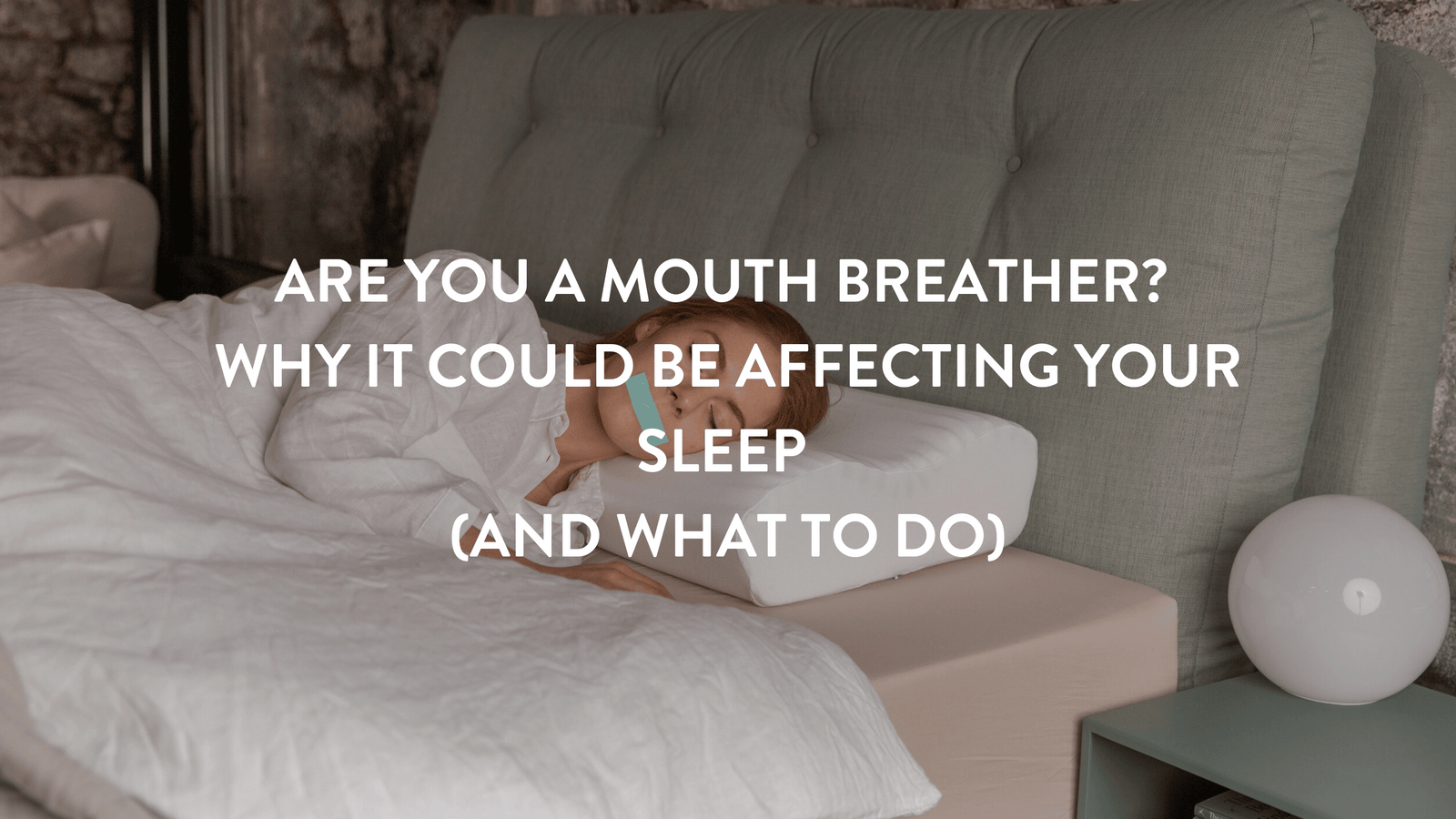
Are You a Mouth Breather? Why It Could Be Affecting Your Sleep (and What to Do)
Breathing is such a natural part of life that we often don't give it much thought until there's an issue. But have you found yourself waking up with a dry mouth, snoring, or feeling more tired than usual? If so, you could be experiencing the effects of mouth breathing during sleep. What seems like a small detail can have a significant impact on your sleep quality, posture, and long-term health.
This blog will explore why mouth breathing happens, the signs to look out for, how it can disrupt your sleep and wellness, and actionable tips to overcome it.
From simple adjustments in sleep posture to specialised tools like the Putnams Bed Wedge Pillow or techniques like mouth taping, we’ll cover everything to help you breathe better and sleep more soundly.
What Is Mouth Breathing and Why Does It Happen?
Mouth breathing occurs when someone breathes through their mouth instead of their nose, often during sleep. It may seem harmless, but mouth breathing can lead to a snowball effect of health issues, particularly when it becomes a nightly habit.
There are several reasons this may happen:
- Nasal congestion from colds, allergies, or sinus infections.
- Structural issues like a deviated nasal septum or enlarged tonsils and adenoids.
- Chronic conditions such as asthma or sleep apnoea.
- Stress and anxiety, which can lead to shallow and rapid breathing.
Unlike nose breathing, which filters, humidifies, and warms the air before it reaches your lungs, mouth breathing skips these vital steps, exposing you to unfiltered air and dry conditions in the throat.
See also - Can Natural Pillows Help with Allergies?
Signs You Might Be Breathing Through Your Mouth at Night
You’re asleep when it happens, so how do you know?
There are some tell-tale signs and symptoms to look out for:
- Waking up with a dry mouth or sore throat.
- Snoring or noisy breathing.
- Bad breath (due to reduced saliva flow).
- Dark under-eye circles or a “tired” appearance.
- Feeling fatigued or irritable upon waking.
- Brain fog or lack of mental clarity.
- Jaw pain or dental issues caused by constant mouth dryness.
For children, mouth breathing presents additional concerns, such as slower growth rates, difficulties concentrating in school, and in severe cases, changes to their facial structure over time.
Identifying these symptoms is just the first step.
Understanding how they disrupt your sleep can help guide you toward effective solutions.
How Mouth Breathing Affects Your Sleep and Health
Breathing through your mouth can do more than just cause discomfort; it can have long-term implications on your wellbeing.
Here’s how it impacts you:
Sleep Quality
Breathing through your mouth disrupts normal oxygen intake, which can lead to fragmented sleep cycles and reduced overall rest. Poor oxygenation may even exacerbate conditions like sleep apnoea, leading to daytime fatigue.
Posture and Jaw Alignment
Prolonged mouth breathing shifts the balance of your facial muscles and can force your jaw and neck into misalignment. Poor posture during the day can also carry over into sleep, making it even harder to breathe through your nose.
Dental and Oral Health
Without the protective effects of nasal breathing, mouth breathing dries out the saliva that helps prevent bacteria build-up.
The result?
Increased risk of cavities, gum disease, and bad breath.
General Health Risks
Chronic mouth breathing has been linked to high blood pressure, heart issues, and poor cognitive performance over time. Left unaddressed, it’s not just your sleep that’s at stake, but your long-term health as well.
For a visual guide on how mouth breathing can affect your sleep quality, check out this helpful video.
See also - Sleep Naturally: How Organic Bedding Can Transform Your Health
Ways to Reduce Mouth Breathing During Sleep
If you suspect mouth breathing is affecting your sleep, the good news is there are several strategies you can use to address it.
Improve Sleep Position and Pillow Use
Your sleeping position plays a big role in supporting better airways:
- Use a product like the Putnams Bed Wedge Pillow to elevate your upper body. Its adjustable incline reduces nasal congestion, facilitates easier nasal breathing, and lowers the chances of snoring.
- Align your neck and head with supportive, ergonomic options like the Putnams Specialist Pillows, which improve posture while keeping airways open.
Mouth Taping
This method involves gently taping your lips shut (with tape designed for skin use) to encourage nasal breathing. While it may sound unusual, many people find that mouth taping significantly improves their breathing during sleep.
See also - Sleep Tape: Does It Work and What Should You Pair It With
Use Nasal Strips or Nasal Dilators
Nasal strips or dilators gently open your nostrils, easing airflow and reducing the urge to switch to mouth breathing. They’re non-invasive and simple to use, making them a great starting point for addressing blocked nasal passages.
Maintain a Clean Sleep Environment
Dust, pollen, and allergens can cause nasal blockages, making nasal breathing difficult. Use air purifiers, keep bedding clean, and ensure your bedroom is allergen-free for optimal conditions.
Practice Nasal Breathing Exercises
During the day, consciously practise breathing through your nose to create new habits. Techniques like diaphragmatic breathing can strengthen your nasal passages and train your body to rely on your nose.
Manage Underlying Conditions
If allergies, sinus infections, or structural issues like a deviated septum are causing persistent mouth breathing, speak to a healthcare provider about effective treatments such as antihistamines, saline sprays, or minor surgical options.
See also - Relieving Congestion and Sinus Issues with Bedding
Supportive Products to Help You Breathe Better at Night
Looking for the perfect tools to enhance your progress? These Putnams products come highly recommended:
- Bed Wedge Pillows: Elevate your upper body and reduce nasal congestion with an adjustable incline. This pillow is not only handmade but also available with fast delivery to help you start breathing better right away.
- Specialist Pillows: Ergonomic pillows designed to align your neck and open nasal passages. Ideal for those looking to maintain proper posture during sleep.
- Pressure Cushions: Reduce daytime postural issues that can influence your nighttime breathing patterns. Perfect for improving overall wellness during your routine.
These products are tailored for your comfort and health, making them excellent additions to your nightly routine.
See also - Sneezes to Snoozes: Mastering Sleep with Hay Fever Hacks
Take Charge of Your Sleep and Health
Mouth breathing might seem harmless at first, but its effects on your sleep quality and overall health are too significant to ignore. With a better understanding of why it happens and the tools to address it, you're well on your way to improving your nightly rest.
Explore options like the Putnams Bed Wedge Pillow range and ergonomic solutions to kick-start your progress, and consult your healthcare provider for issues like allergies or structural nasal concerns.
It’s time to take that first deep, nasal breath. Sleep soundly and breathe easy with thoughtful adjustments tailored to you.




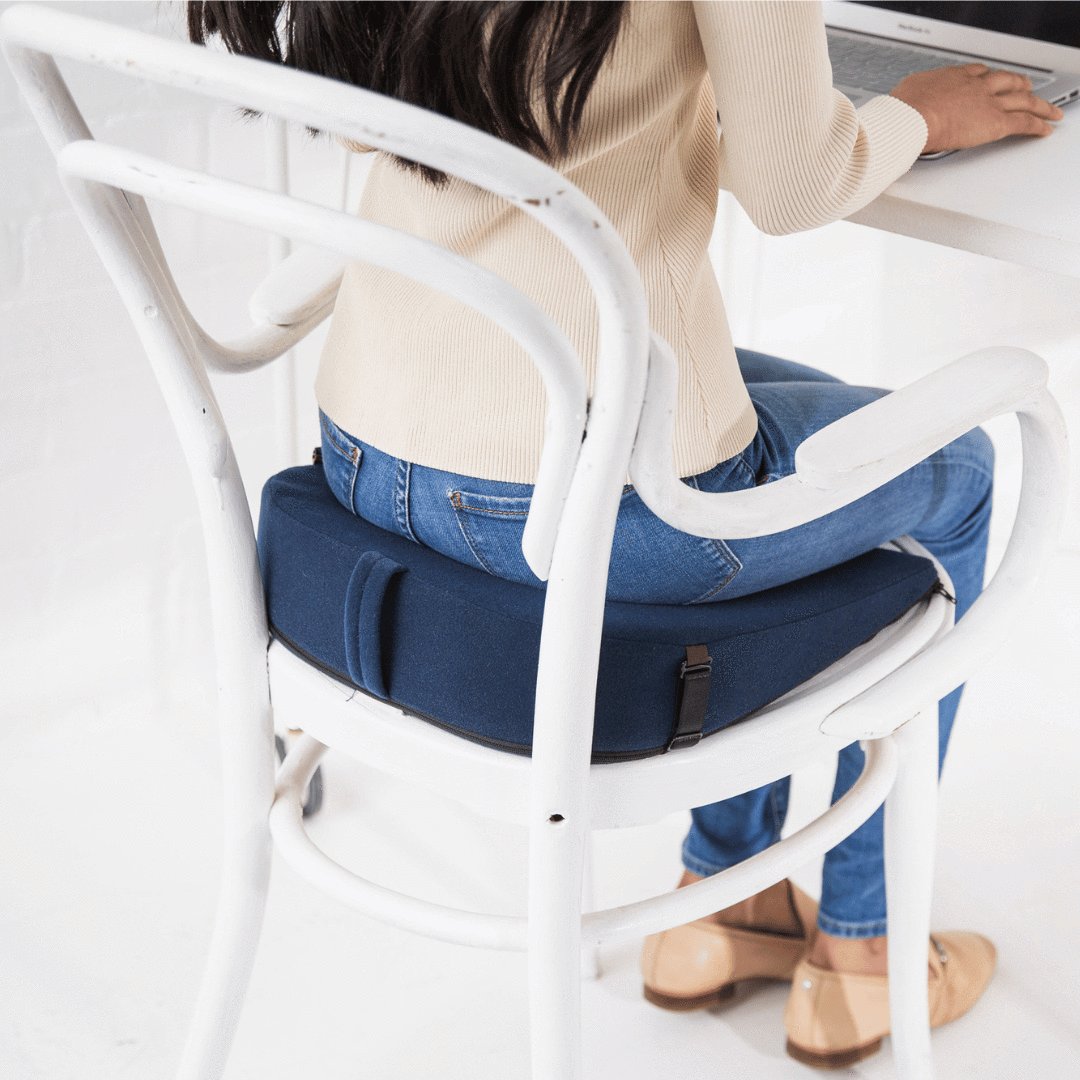

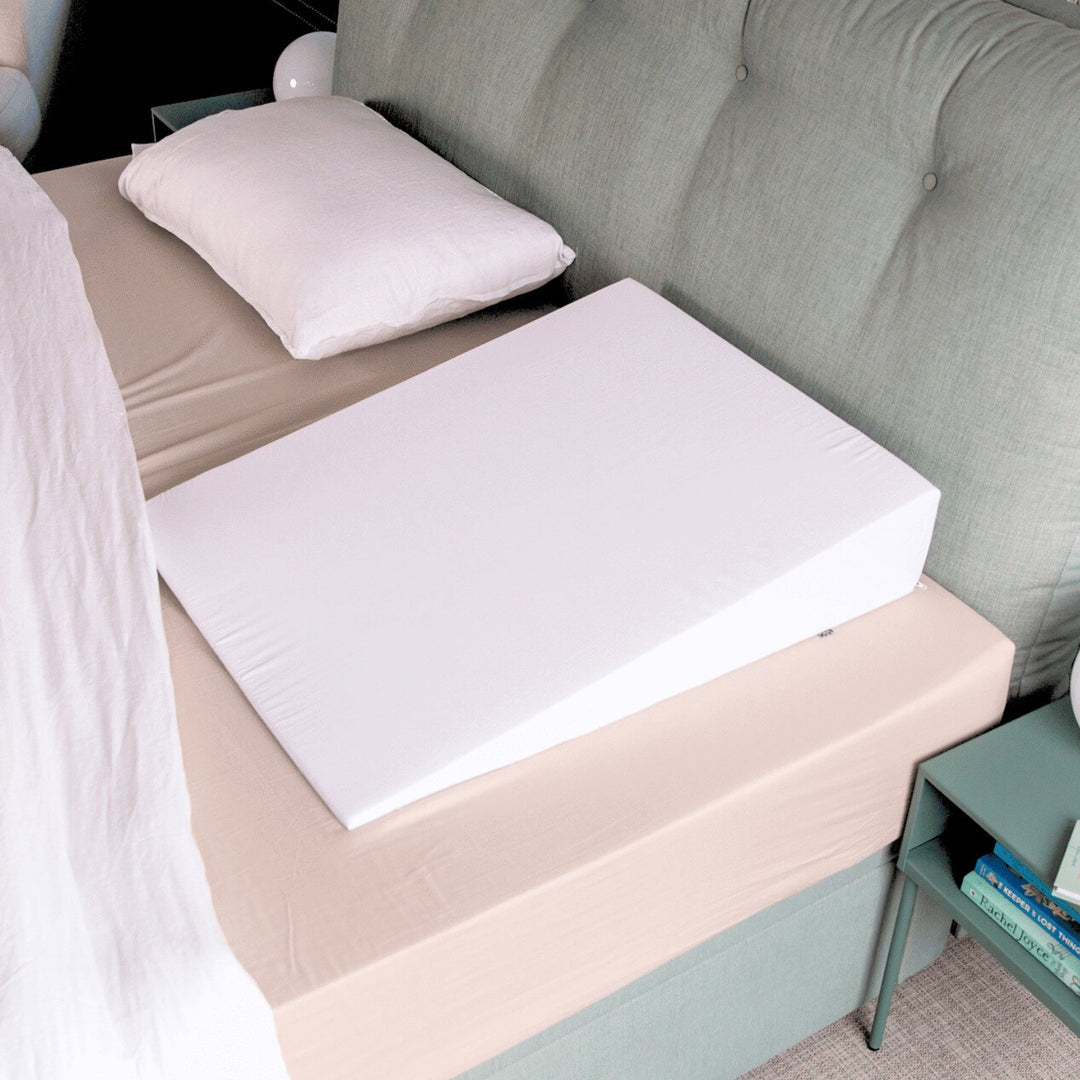
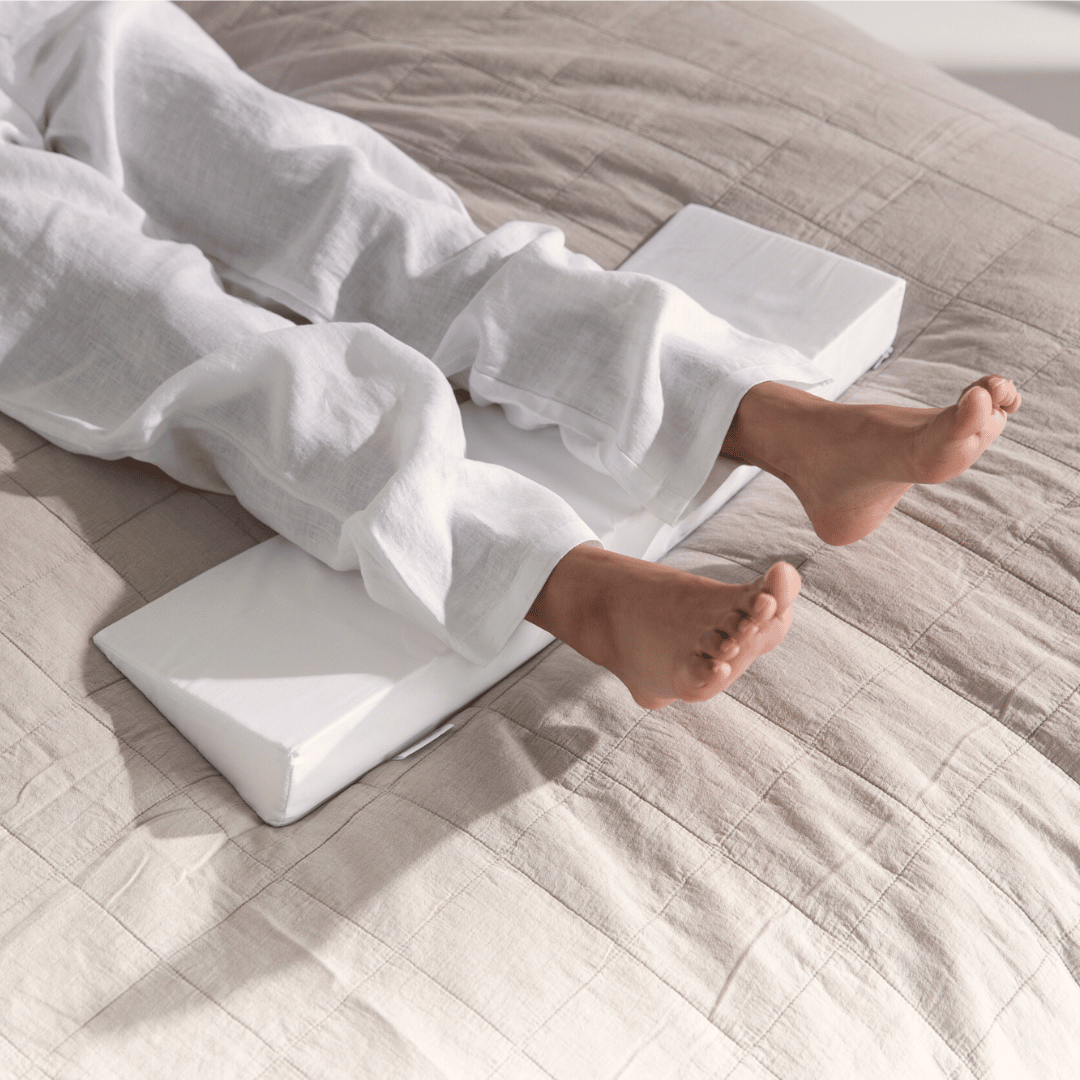






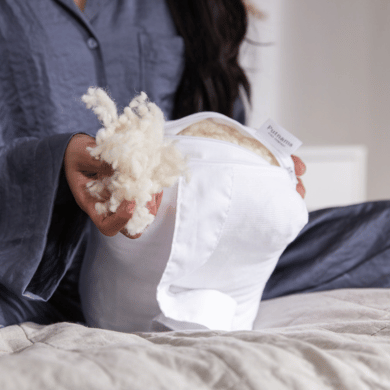

Laissez un commentaire